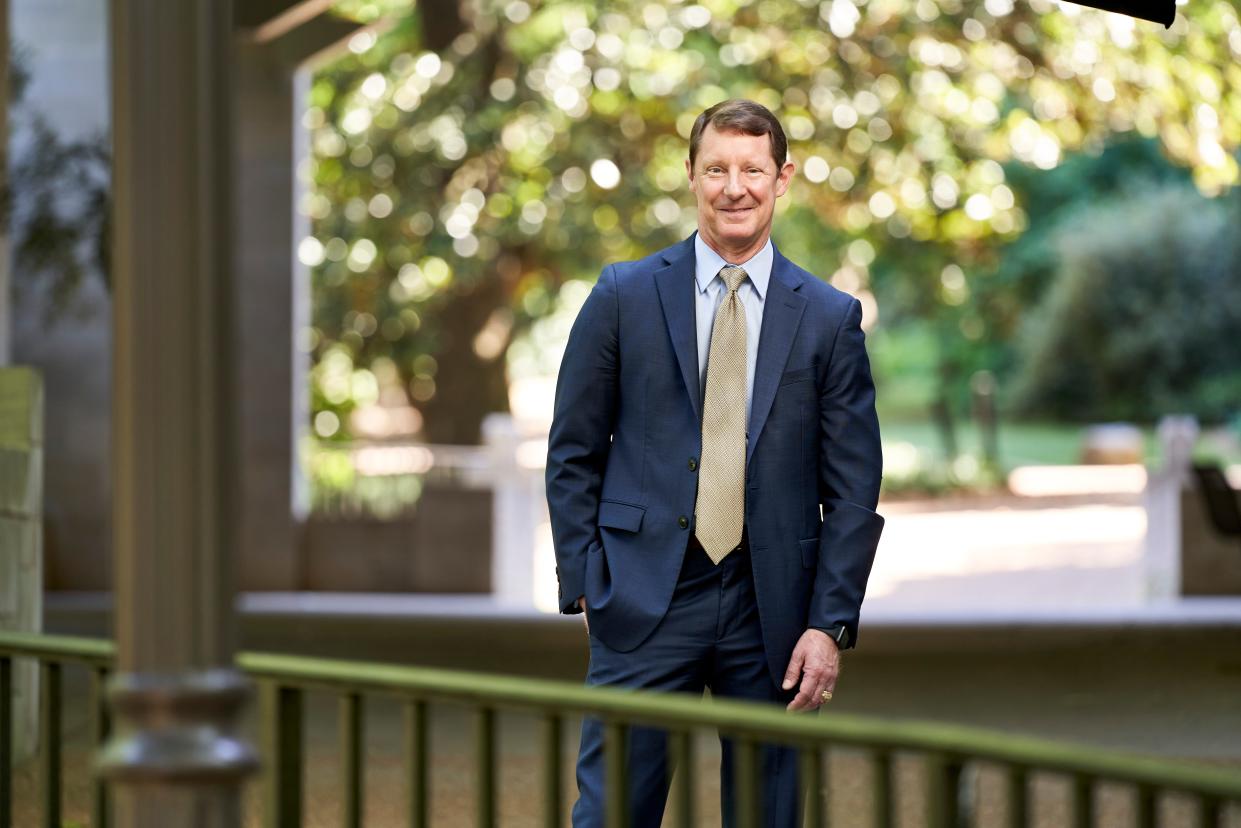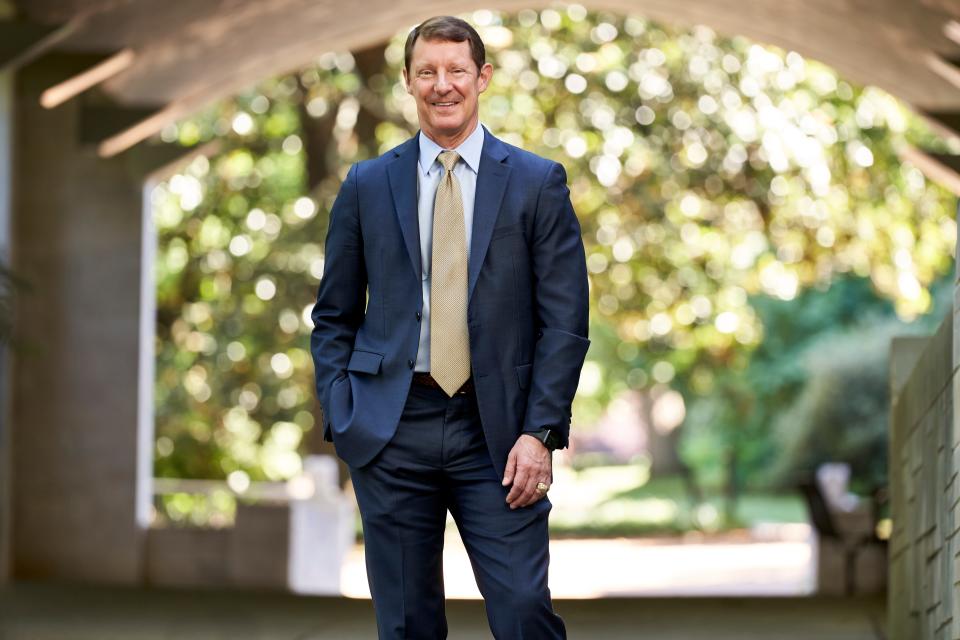How this Vanderbilt law professor and his students are helping Iraqis handle thousands of ISIS cases

Editor's note: This story first appeared online Dec. 13 for subscribers only. Please support local journalism and get first access to more stories like this with a subscription.
For Mike Newton, earning trust means drinking a lot of chai, even though he doesn't particularly like it.
Trust, dependability, accountability — all are vital to Newton's work in international law, where showing up when you say you will helps bridge cultural divides.
"If you say you're going to help, you show up. Full stop," the Vanderbilt University law professor said. "There's no substitute for spending time with people."
Much of Newton's recent work has been focused in helping the Iraqi judiciary rebuild its court system and standard of law practice after its decimation by former dictator Saddam Hussein.
The work now is to prosecute tens of thousands of ISIS cases, genocide charges and cultural shifts ignored while the country dealt with internal struggles, he said.
"'We had the rule of law,' judges tell me. 'But Hussein disrupted the rule of law,'" he told The Tennessean in a recent interview. "There's a deep heritage of Iraqi judges respecting the rule of law, doing it in their context and in their way."
BIDEN SUMMIT: 'Democracy needs champions': Biden calls on world to fight authoritarianism, corruption at inaugural summit
Now those judges are back on the world stage. They are hungry for information on how human rights abuse cases are being handled elsewhere are seeking help in crafting their justice work going forward, law student Cait Martins said.
That's where Newton and his students come in.
Exclusive class: International Law Practice Lab
Newton and his team of researchers is often supplemented by students in an exclusive class offered by the university called the International Law Practice Lab.
Newton's collaborative work with Iraqi judges is funded by a grant from the U.S. State Department, he said, with the goal of helping Iraqi courts prosecute ISIS and process the counterterrorism cases in a manner that aligns with international human rights norms.
Together, they're building guidelines they hope will stand the test of time.
"We'll go, ok, here’s a key issue. In every other system like this, here's how we would handle it. You’re the judge, but here's what the French would do, the Dutch, the Hague," he said. "They want to do it right, and they value that expertise."
Last year, the team of students, which includes Martins and Emily Webb, built a 300-page manual to support attorneys in international criminal tribunals work under widely established international criminal law best practices.
They hope to expand it in the next semester.
"The U.S. is a major player on the world stage," Webb said. "Everything we do is connected to international law, and whether or not we see it, it is integral to the way we work."
Martins and Webb are both in their third year of law school and expect to graduate in the spring. They're both set to keep working with Newton next semester on the project.
"Tennessee is this little treasure trove of expertise in international law," Martins said. "That’s just really cool. International law is around you every day — satellite negotiations, treaties, bilateral agreements. Understanding where problems fit is not as clear cut as in domestic law."
More: What counts as a democracy? Biden's summit includes some countries with poor human rights records
The students said the real-world application of their work in the lab raises the stakes of their class work, but the trust their professor places in them to help makes a world of difference in the hands-on learning.
'Real life repercussions'
"It’s stressful," Martins said. "It puts the pressure on. There are real life repercussions, not just a grade. But it's also really exciting. The reason we’re in law school is to do this kind of stuff."
"I do feel Newton has given us a lot of opportunities. When he throws my hat in the ring I’m happy to jump after it," Webb said with a laugh.
Newton, who has been known to video conference into classes in Nashville at 2 a.m. his time while traveling for work, recently returned from Iraq on one of his regular visits to the area to meet with judges and court staff.
He's set to go back early next year.

"It's cyclical, this work," he said. "Every visit, every conversation, generates a to-do list of follow up needs. There's always new stuff that pops up. You only get that from being there on the ground in person."
More: Inside the Vanderbilt lab researching a promising new COVID-19 treatment
He referenced a metaphorical ocean, the tide bringing new challenges and spreading the message each time it comes in. This work will never be truly over — each new challenge in every human rights court becomes a new chance to set best practice for the future.
"That's the point. Learning, growing. That’s the point. That’s what it's about," he said. "They prosecuted 20,000 ISIS cases on their own. They made a huge dent, but there's a massive amount of work to be done. This is common sense."
Newton is careful to explain his work is about collaboration with the Iraqi judges and their system of civil law as it stands, not forcing other ideas onto their work.
He's had a long career in the international criminal justice sphere.
A West Point graduate, he served in the U.S. Army fomore than 21 years across the world. Later, he served as the senior adviser to the Ambassador-at-Large for War Crimes Issues in the U.S. State Department from January 1999 to August 2002 and has worked with the Iraqi High Judiciary in one form or another since 2006.
When he decided to take a job at Vanderbilt, he said it was because nowhere else in the country had the vision to build a space that made room for work like the practice lab.
"That was pretty special," he said.
Reach reporter Mariah Timms at mtimms@tennessean.com or 615-259-8344 and on Twitter @MariahTimms.
This article originally appeared on Nashville Tennessean: Vanderbilt law professor, students help Iraqis prosecute ISIS cases

